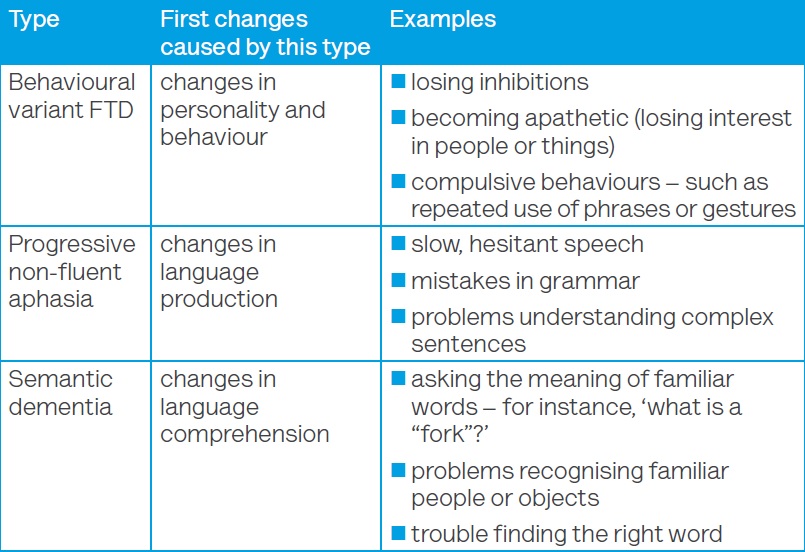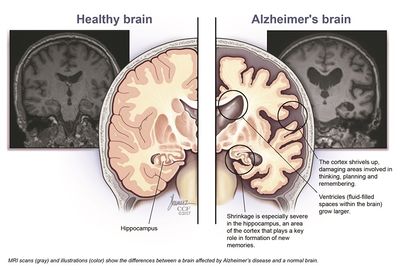Recognizing the Effect of Dementia on Daily Life and Caregiving
Dementia influences every day life in extensive methods, influencing not just those identified however additionally their caregivers. As cognitive decline advances, you could observe adjustments in communication and routine that difficulty both events. Comprehending these changes is crucial for maintaining self-respect and engagement. Just how do you adapt your caregiving strategies to support somebody traversing this complex journey? The solutions could amaze you as we check out the nuances of this experience.
The Stages of Dementia and Their Impacts on Life
As you browse the trip of mental deterioration, recognizing its phases can considerably affect how you handle daily life. Mental deterioration normally advances via 3 primary phases: early, middle, and late.
During the middle phase, you'll experience extra recognizable cognitive decline. Daily jobs could become challenging, and keeping your independence may require adjustments. Using pointers and simplifying your atmosphere can assist.
In the late stage, individuals commonly require significant assistance with day-to-day tasks. Preparation for care ends up being important, concentrating on convenience and lifestyle. By comprehending these stages, you're much better furnished to respond proactively, guaranteeing you or your liked one can browse the obstacles with self-respect and poise.

Changes in Communication and Social Interaction
Just how do modifications in interaction affect your everyday communications as mental deterioration progresses? As dementia breakthroughs, you might see that easy conversations come to be difficult.
You might find it easier to attach through these ways rather than relying entirely on talked language. Listening skills can additionally transform; you could discover it more challenging to bear in mind or follow discussions what was simply stated (Fall Risk). This can lead to misconceptions or sensations of isolation
Motivating perseverance and producing an encouraging atmosphere can assist. Engaging in tasks that foster link, like songs or art, can enhance social communications. Remember, preserving relationships is still feasible; it's almost adjusting to new means of connecting.
Influence on Daily Routines and Activities
While steering day-to-day routines, you'll likely observe that jobs you as soon as finished easily become extra difficult as dementia progresses. Straightforward activities like cooking, clothing, and even showering may call for more effort and time. You could discover on your own failing to remember steps in familiar regimens or having a hard time to remember where you placed items. This can lead to irritation not simply for you, however also for those around you.
Adjusting your setting can assist; for circumstances, identifying products or utilizing lists can streamline jobs. Engaging in repeated, structured tasks can likewise give convenience and a sense of accomplishment. Keep in mind, it's fine to ask for help.
Behavioral and emotional Challenges
Steering through day-to-day regimens can produce not simply useful challenges, but likewise emotional and behavioral ones. You may discover modifications in mood, such as raised anxiety or aggravation, which can stem from complication or problem in finishing tasks. As you browse these moments, it is important to identify that your loved one may reveal their sensations with habits like agitation or withdrawal.
These psychological responses can be uncertain and may emerge without warning, leaving you both feeling overwhelmed. You could locate that familiar atmospheres or regimens can help in reducing anxiety, however keeping patience becomes considerable. It is very important to validate their sensations, even if you don't completely understand them.
The Duty of Caregivers in Sustaining Individuals With Dementia
As a caretaker, you play a crucial duty in supplying emotional support for individuals with dementia. Developing everyday care routines can create a sense of security and comfort, assisting to alleviate their anxiousness. By comprehending their needs and utilizing effective techniques, you can significantly enhance their high quality of life.
Psychological Support Approaches
When taking care of someone with mental deterioration, understanding the emotional landscape is crucial for providing efficient support. You'll frequently locate that persistence and empathy go a lengthy means. Verify their sensations; if they express complication or aggravation, recognize it without dismissing their feelings. Simple motions, like holding their hand or keeping eye call, can develop a feeling of security. Attempt to involve in tasks that they delight in, as this can spark happiness and link. Keep in mind to connect clearly and gradually, making use of a calm tone. Encourage expression via music or art, which can serve as a powerful electrical outlet. Inevitably, do not neglect to take care of your own psychological needs; seeking assistance on your own can boost your capability to look after them.
Daily Care Routines
Developing daily care routines is essential for offering stability and comfort to individuals with mental deterioration, as these routines can help minimize complication and stress and anxiety. You can start by outlining a consistent routine for meals, activities, and remainder. This predictability helps your liked one really feel more secure and engaged.
Include acquainted jobs, like folding laundry or watering plants, which can stimulate favorable memories and cultivate a sense of achievement. Usage visual hints, such as checklists or schedules, to lead them via the day.
Be flexible, though; adjust regimens as required based upon their mood or power degrees. Frontotemporal Dementia. Keep in mind, your patience and understanding are vital in navigating their transforming requirements, guaranteeing they feel sustained and valued throughout their every day life
Producing a Safe and Comfy Living Setting
Developing a comfortable and secure living atmosphere is essential for individuals with mental deterioration. You'll want to make home security adjustments that minimize risks and guarantee familiarity to supply a sense of convenience. By concentrating on these aspects, you can assist produce a space that sustains both safety and security and health.
Home Security Alterations
As you browse the challenges of dementia, making home security alterations can greatly improve comfort and security. Begin by removing tripping dangers like carpets and mess, assuring pathways are clear. Set up grab bars in bathrooms and non-slip mats learn this here now in the shower to avoid falls. Consider making use of brighter lights and evening lights to improve presence, especially throughout nighttime. Tag essential areas, such as the shower room and cooking area, with clear signs to aid with alignment. Protect any type of sharp items or poisonous compounds out of reach. In addition, analyze your home's locks and alarms to validate they're easy to use and supply tranquility of mind. These modifications not only advertise safety and security yet additionally urge self-reliance, permitting your enjoyed one to really feel more comfortable in their atmosphere.
Convenience and Knowledge
After making sure a risk-free environment with needed adjustments, promoting comfort and familiarity is important for individuals with dementia. Beginning by customizing their space. Use acquainted colors, designs, and pictures that look what i found stimulate satisfied memories. A favorite covering or chair can give a feeling of protection. Maintain a consistent regular to help them feel based and minimize stress and anxiety. Simple, acquainted dishes can also produce a comforting ambience. Maintain pathways clear and clutter-free to avoid confusion. Incorporate soft lights, as brilliant lights can be disorienting. Think about including relaxing fragrances, like lavender, to promote relaxation. Participating in acquainted activities, such as paying attention to music or horticulture, can improve their feeling of belonging, making their living atmosphere a real refuge.
Approaches for Effective Caregiving and Assistance
While steering the challenges of mental deterioration care can feel overwhelming, applying effective techniques can considerably improve both the caretaker's and the client's everyday experience. Beginning by developing a regimen; predictability helps decrease anxiousness for both you and your liked one. Use clear, straightforward communication-- straight inquiries and brief sentences can avoid confusion.

Don't fail to remember to care for yourself; routine breaks and get in touch with support teams. Sharing experiences with others in similar scenarios can offer useful understandings and emotional relief.
Last but not least, remain individual and adaptable. Mental deterioration can bring unforeseeable changes, so adapting your strategy is vital. By employing these techniques, you can promote an extra favorable atmosphere that profits both you and your liked one.
Frequently Asked Questions

What Are the Various Sorts Of Mental Deterioration?
You'll discover numerous sorts of dementia, including Alzheimer's, vascular dementia, Lewy body dementia, and frontotemporal dementia. Each kind influences memory and cognitive feature in a different way, so understanding the differences is crucial for correct medical diagnosis and treatment.
Just How Can I Assist A Person With Early-Stage Mental Deterioration?
You can assist someone with early-stage dementia by holding your horses, offering assistance, and encouraging them to take part in activities they delight in. Keeping regimens regular and preserving open interaction can also make a significant distinction in their every day life.
Exist Financial Resources Available for Dementia Treatment?
Yes, there are funds readily available for dementia care. You can explore federal government support programs, not-for-profit organizations, and insurance choices. It's likewise important to get in touch with neighborhood agencies for details sources tailored to your circumstance.
What Lawful Considerations Should Caregivers Recognize?
As a caregiver, you must take into consideration power of lawyer, medical care proxies, and guardianship regulations. It's important to understand the legal civil liberties and obligations you hold, guaranteeing your liked one gets suitable treatment and defense.
Exactly How Can I Deal With Caregiver Stress?
You can handle caretaker stress and anxiety by prioritizing self-care, looking for assistance from teams or good friends, establishing practical expectations, taking breaks, and practicing leisure methods. Keep in mind, your well-being matters equally as high as the person you're caring for.
Recognizing the Influence of go to my blog Dementia on Daily Life and Caregiving.
As you browse the trip of mental deterioration, recognizing its phases can markedly impact exactly how you manage everyday life.While navigating everyday regimens, you'll likely observe that jobs you once finished easily ended up being a lot more challenging as dementia proceeds.Developing day-to-day treatment routines is essential for providing stability and comfort to people with dementia, as these routines can aid minimize confusion and anxiousness.While steering the obstacles of dementia treatment can feel overwhelming, applying efficient techniques can substantially boost both the caregiver's and the individual's day-to-day experience.